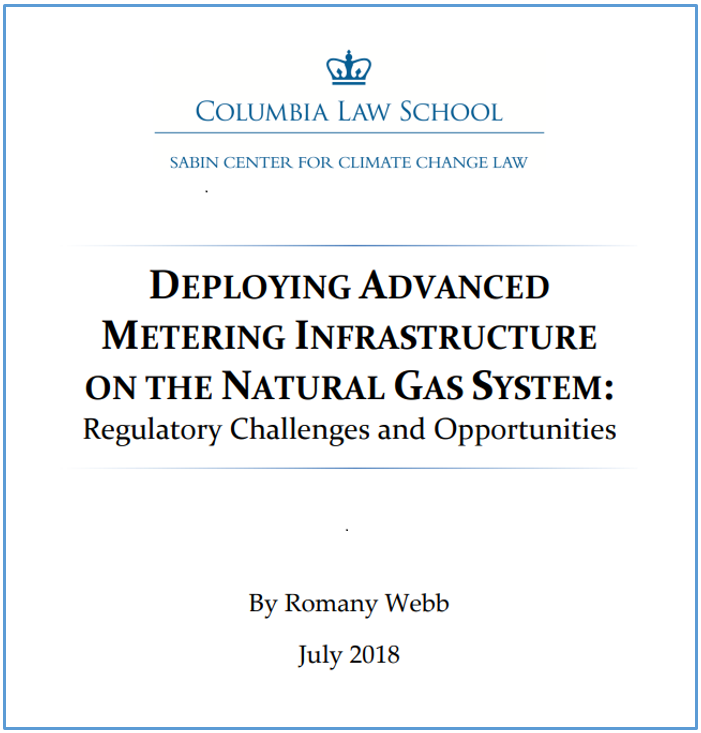By Danielle Sugarman
Fellow
On February 23, 2011, the New Hampshire House of Representatives took another step forward in its efforts to withdraw the state from the Regional Greenhouse Gas Initiative (“RGGI”). Originating in the Science, Technology and Energy Committee (the “Committee”), House Bill 519[1] passed in the House of Representatives by a vote of 246 -104. In 2008, New Hampshire became the last of ten New-England and Mid-Atlantic states (including Connecticut, Delaware, Maine, Maryland, Massachusetts, New Jersey, New York, Rhode Island and Vermont) to join the mandatory, market-based carbon dioxide emissions reduction program.
If the legislation is ultimately enacted, House Bill 519 would lift the requirement that New Hampshire cap carbon dioxide emissions – giving the state until the end of the year to exit RGGI. Amendments would keep the Energy Efficiency and Sustainable Energy Board, created in 2008 to run the state’s green energy programs, from disbanding. Any money left over in the state’s Greenhouse Gas Emissions Reduction Fund that was set up to dispense RGGI revenues would be shifted to a more general energy efficiency programs fund.
Republican proponents of House Bill 519 argue that the state’s participation in the cap and trade program has “increased the cost of doing business, pushed companies to do business with other states or nations, and increased consumer costs for electricity, fuel, and food.” Additionally, they argue that RGGI has done little to affect global concentrations of GHGs. At the same time, however, the text of the bill acknowledges that, “[t]here has been no credible economic analysis of the costs associated with carbon dioxide emissions reduction mandates and the consequential effect of the increased costs of doing business in New Hampshire.”
Opponents of the bill argue that RGGI has minimal economic impact. According to Public Service of New Hampshire, the state’s largest utility, individual homeowners and small businesses consumers pay on average $0.36 and $1.20 per month, respectively. They also argue that RGGI provides benefits to the state’s energy consumers by funding energy efficiency and renewable projects. Proponents on the other hand, broadly assert that large industry can be impacted anywhere from a few dollars to a few hundred dollars a month.[2]
The next step for House Bill 519 is a hearing scheduled for the House Finance Committee on March 16. The state financial office has said, however, that it has not had time to prepare a key “fiscal note” which would have illustrated the economic impact of withdrawing New Hampshire from RGGI (specifically, the loss of funding the state would incur by not participating in RGGI emissions auctions). Following the hearing, the bill will head back to the House floor on March 24. Business leaders, environmental groups and politicians who oppose repealing RGGI are not confident the bill can be stopped in the Senate.
As Republicans hold majorities in both chambers of the New Hampshire Legislature, the bill is expected to be sent to Governor John Lynch (D) for signature. Gov. Lynch, who has been a strong RGGI supporter, sent a letter to the Committee saying he would veto the bill if passed. In his letter, Gov. Lynch stated that “[w]ithdrawing from RGGI would be a blow to our economy and to our state’s efforts to become more energy efficient and energy independent.” According to an independent economic assessment of the program conducted by the University of New Hampshire, the cumulative impact of RGGI through the end of 2010 has been a cost of $11.7 million, and a benefit of $28.2 million in allowance revenue.[3] The Governor contends that these funds that have been invested directly in helping New Hampshire families, businesses and governments reduce their electric use and costs as well as to create jobs.
Gov. Lynch has also emphasized that withdrawing from RGGI will result in New Hampshire consumers paying higher electric costs without receiving any coordinating benefits. Since New Hampshire is part of a regional electricity system, unilateral withdrawal would not result in electric rates falling to prior levels. Rather, “ratepayers would continue to pay as much as $6 million in additional electricity rates while losing more than $12 million in allowance auction revenues annually.”[4] In spite of this evidence, opponents of the bill are concerned that legislators with have enough votes to override Gov. Lynch’s veto.
While there have been nine auctions held by RGGI since 2009, in which electric utilities and some investment firms have bought emissions allowances raising roughly $729 million for a range of emissions-reduction and energy-efficiency programs, House Bill 519 has undoubtedly emerged as a byproduct of the growing opposition to the concept of a carbon cap and trade program among Republicans. It represents a tendency among newly elected Republican officials to question their states’ renewable energy standards and to enact policies that give voice to more ardent climate skepticism.[5]
[1] For text of House Bill 519 see: https://e-lobbyist.com/gaits/text/135274
[2] https://www.nhpr.org/lawmakers-look-repealing-rggi
[3]Http://www.puc.nh.gov/Sustainable%20Energy/GHGERF/Evaulations/GHGERF_Year1_Report_11Feb2009.pdf
[4] Governor Lynch’s Press Release: https://www.governor.nh.gov/media/news/2011/021011-rggi.htm
[5] In a similarly sweeping move, Maine’s Governor Paul LePage recently proposed a set of 63 clean energy and environmental reversals that Maine environmentalists contend will threaten the State’s climate change efforts and its nature based economy.


